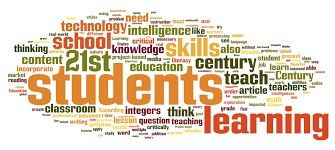The Success of The 21st Century Community Learning Centers Initiative

The 21st Century Community Learning Centers initiative is a key component of the “No Child Left Behind" Act. This program was reauthorized in 2015 as part of the Every Student Succeeds Act (ESSA). It provides students with the opportunity for to enhance and reinforce academic lessons of the regular school day, while also allowing them to learn new skills and discover new opportunities after the regular school day has ended. The program funds academic and personal enrichment services for children and their families in low-income areas across the US. The 21st Century Community Learning Centers activities are offered before school, after school, on Saturdays and / or during the summer.
This program offers unique opportunities in before school and after school programs, Saturday School, and Summer Camp.
In a recent study, it was determined that the number of students in self-care rose from 14 million in 2003 to 19 million in 2009, despite greater availability of afterschool care (Afterschool Alliance, 2009). This disparity prompted a study to determine to what extent the largest nationwide funding source for local afterschool and summer learning programs in, or linked to, schools is meeting the demand for requests.
Although it is a federally financed program, state departments of education manage the actual competition for funding in their states. Awards are made to local schools or community groups (working with local schools) interested in offering educational, youth development, and family programming afterschool and during summers. Interestingly, the 21st Century Community Learning Centers initiative is the largest federally funded education effort that fosters both community-school partnerships and family involvement.
Percy L. Julian School in the Roosevelt School District serves about 651 students K-8th. The 21st CCLC program has supported this site with providing a safe place for students before and after school. Not only has the grant been utilized to aid in supporting the school with developing a positive school culture, but it has also enhanced their opportunity to establish community partnerships. Some of Percy Julian Elementary School’s current partners are with St. Mary’s Foodbanks, Future for Kids, Be Kind, Cool Fitness and Mad Science.
Community collaboration with schools complements and reinforces values, culture and the learning opportunities that schools can provide for their students. In other words, teachers, staff parents, business, nonprofit, service clubs and the like working together, truly make a difference in the lives of students.
Business and nonprofit partnerships in public schools enable students to expand their horizons to see and experience the work place and what opportunities lie ahead for them. These partnerships make schools stronger.
As the district embarks on a new chapter in its legacy to create schools with tomorrow in mind, providing 21st-century learning for youth, they will need community partners more than ever.


